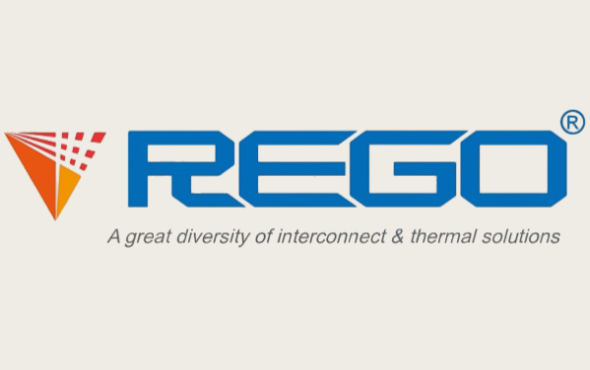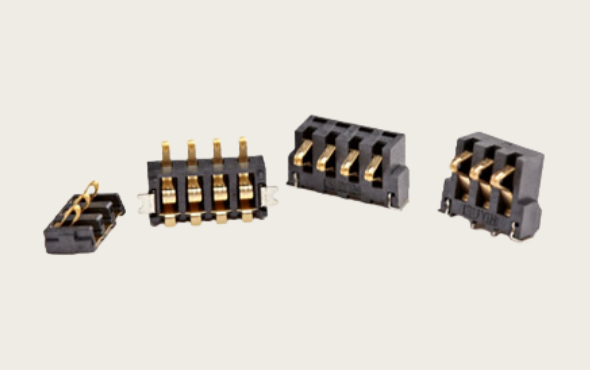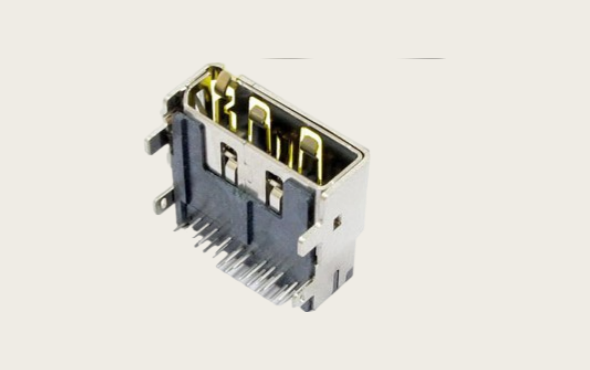With the domestic electronic manufacturing industry moving from "conservatism" to "innovation," connectors, as key structural, signal, and power components in electronic systems, are showing an increasingly obvious trend of domestic substitution. Taking the connector brand Rego (Rego Electronics Inc.) as the object of observation, let's explore the possibility, path, and challenges of "whether domestic connectors will truly replace imported goods in 10 years."

A brief review of the Rego brand & productsRego is a connector and interconnect manufacturer from Taiwan, offering products including Edge-Card connectors, high-speed PCIe interfaces, storage card sockets, display interfaces, backplane connectors, and power connectors.
●For example, its Edge Card/PCI Express series products are positioned as "supporting next-generation processors and higher bandwidth," and in the product description, specifications such as "1.00 mm pitch supporting 32 GT/s (Gen 5)/16 GT/s (Gen 4)/8.0 GT/s (Gen 3)" are mentioned.
Its product applicable market also includes: data centers, high-performance computing, artificial intelligence, servers, storage, embedded systems, industrial control, automotive, and more.
Therefore, Rego can be regarded as a representative of "imported/international connector brands" that is widely adopted in the domestic market, providing a reference for the domestic replacement in terms of technical threshold and application scope.

Two, prediction of the domestic connector competitive situation in 10 yearsFavorable factors
The drive for localization is strong: with the enhancement of the national policy support for the independent control of electronic components, domestic connector manufacturers have the motivation to catch up in terms of capital, policy, and market.
The local supply chain is完善: the domestic electronics industry chain is mature, from mold manufacturing, material coating, PCB/connection assembly, testing equipment to automation production equipment, it is increasingly capable of self-reliance.
3. Cost and service advantages: Domestic connector manufacturers have the advantage of being "close to the customer" in terms of local service, sample response, customization capabilities, and logistics timeliness.
4. Continuous technological accumulation: Through introduction, digestion, absorption, and re-innovation, domestic manufacturers' design and manufacturing capabilities in high-density, high-speed, and high-reliability fields are gradually improving.
Face challenges
High-end specification threshold: As indicated by Rego, PCIe Gen5 (32 GT/s), 1.00 mm pitch, and ultra-high bandwidth design, such technologies still pose extremely high requirements on materials, structure, signal integrity (SI), electromagnetic compatibility (EMC), thermal management, and reliability testing.
Reliability and consistency: Even if the connector itself meets the performance standards, the stability in processes such as welding technology, assembly accuracy, tolerance control, life testing, and environmental adaptability during mass production is a common bottleneck for domestic substitution.
Brand trust and ecological compatibility: The long-term accumulated quality trust, system compatibility verification, material certification, third-party test reports, and international customer recognition, etc., for domestic brands, still require time to accumulate.
4. Application barriers and system-side verification: Although small, connectors are often embedded in systems such as servers, storage, AI devices, and so on. System-level verification, signal integrity simulation, plug-in life, and environmental testing require industrial collaboration.
Overall judgment: Will domestically produced goods "replace imports" within 10 years?
In my view, the possibility of "complete elimination" is low, but the trend of substantial replacement and the marginalization of imported brands is very significant.
In the mid-to-low-end, high-volume production, and general specification connector market, domestic manufacturers are likely to achieve超越 or equivalent replacement within 10 years.
In ultra-high-end, high-specification, high-reliability, and high-performance scenarios (such as Rego supporting 32 GT/s PCIe Gen5 interfaces and extreme data center applications), imported brands still hold a certain advantage. However, through continuous investment, domestic brands are expected to break through in some niche markets.
Therefore, a more reasonable judgment is: in 10 years, domestically produced connectors will significantly compress the market space of imported brands, and imported brands will no longer occupy the "default preference" as they do now, but become "high-end differentiated choices."

Three, observe breakthrough points for domestic substitution from the product characteristics of RegoRego's Edge Card series supports 32 GT/s, 1.00 mm pitch, and has various configurations (x1/x4/x8/x16) standard links.
This high-standard display sends a key signal: for domestically produced goods to have the ability to replace in the future, they need to possess a comprehensive ability of high-speed signal support, high-density layout, and reliable connection structure.
●Domestic manufacturers can start from the following aspects:
Enhance signal path design capability: including differential pair control, echo, crosstalk, shielding, and grounding management.
●Durability of reinforcement materials/layers/contacts: insertion-extraction life, contact resistance change, temperature cycling, vibration and impact, etc.
Optimize manufacturing and testing processes: mold accuracy, insertion and extraction mechanism, tolerance control, automated assembly, and batch consistency monitoring.
Build system verification ecosystem: Link with downstream systems such as motherboards, storage, artificial intelligence devices, servers, and participate in comprehensive verification.
If domestic manufacturers focus on breakthroughs in these dimensions in the next few years, the path to entering the "high-end connector replacing imported brands" will become clearer.

In summary, ten years from now, can domestically produced connectors replace imported ones? The answer leans more towards "they can replace them in most scenarios" but "it will take more time to completely replace them." Brands like Rego, as representatives of imported ones, provide benchmarks with their high specifications and reliability requirements, as well as a clear direction for domestic producers. The key lies in whether domestic connector manufacturers can achieve breakthroughs in aspects such as high-speed signal support, material technology, reliability consistency, and system verification ecology. If you are focusing on the domestication trend of connectors, or are interested in alternative solutions for imported connector brands, it's advisable to take a longer-term perspective: continuous investment, steady攻关, and in-depth collaboration with system customers will be the key to the take-off of domestically produced connectors.
If you are interested in the domestic substitute products for Rego brand connectors or have procurement needs, or if you have production or sales channels for these brand connectors' domestic substitutes and wish to engage in in-depth cooperation or communication, please contact us through the following information:
Manager Zhang (18665383950, same WeChat number)Contact us. We look forward to working with more industry partners.



